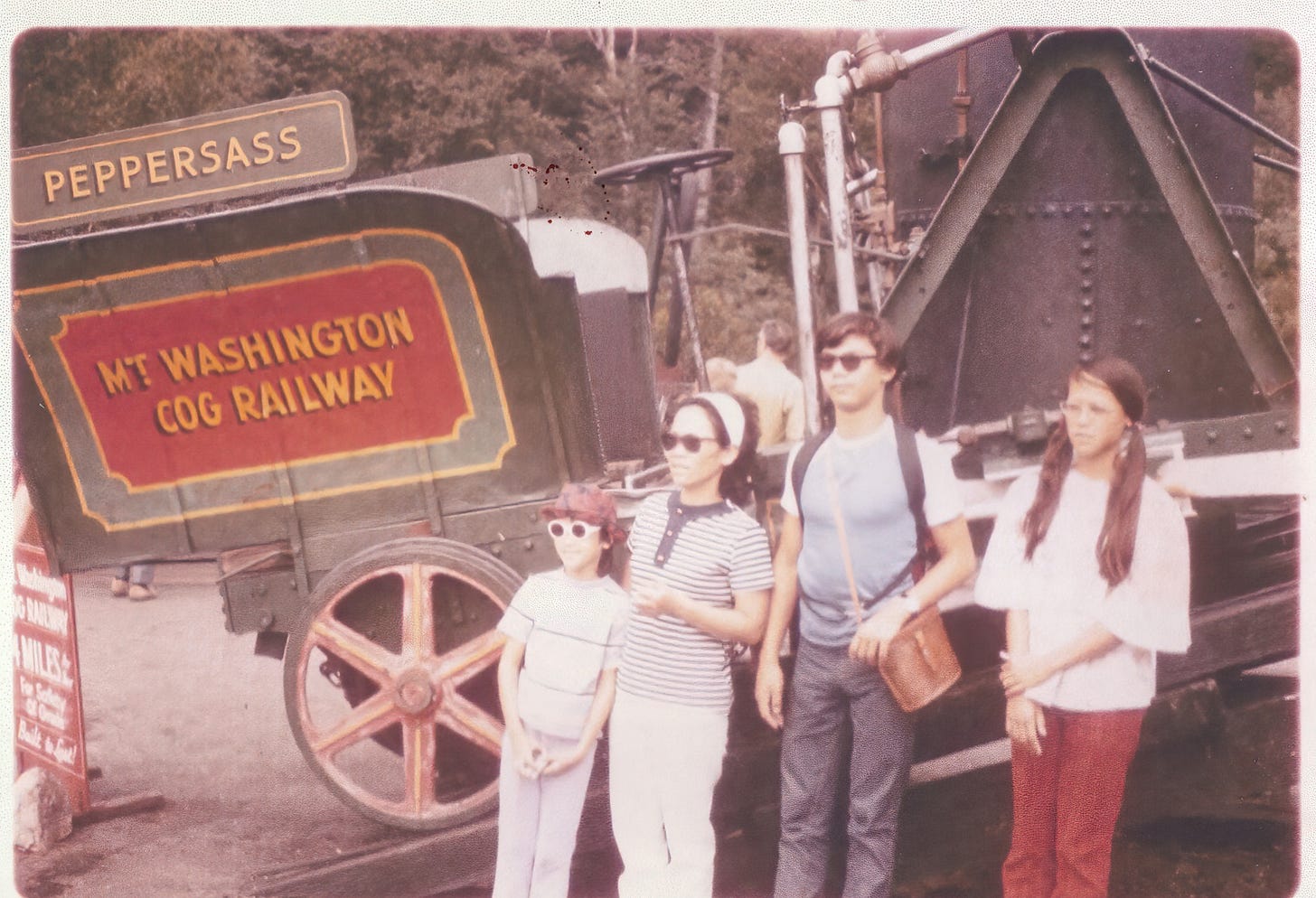Do you ever feel like work is your entire life? Do you obsess about it, find it difficult to disconnect, neglect relationships, or feel stressed when you aren’t working? Is work your priority above everything else?
I’ve actually always loved working—and the long hours didn’t bother me because I was deeply connected to my purpose: helping people across their finish lines. But over the last year or so, my intuition started tapping me on the shoulder: something’s off.
It got loud last July when I took a hiatus month. I thought I’d drop into deep rest and creative clarity. Instead, I felt wildly disoriented. I couldn’t relax.
I tried kicking back again over winter break. Then again during a family trip in February. And again last month in Japan.
(At this point, you’re probably thinking: Seems like she vacations more than she works! And you’re not wrong! I’ve taken more time off in the last year than in the last thirty. 😳)
But here’s what I finally had to face: Whether I was full throttle or fully offline, I felt like I was running in place instead of moving forward.
It got me thinking—have I been spinning my wheels this whole time? Is it possible that working too much, too long, too hard isn’t actually a career strategy?
Overwork can look like ambition. But it can also mask something deeper: burnout, avoidance, self-worth issues, or even grief. And the longer we ignore that, the more likely we are to stall out, break down, or lose touch with the the things that are most important to us.
Oops.
What Is Workaholism, Really?
Workaholism isn’t the same as working hard. It’s when work becomes a coping mechanism—for anxiety, low self-worth, or avoiding harder emotions.
So what’s the difference between being a high achiever and being addicted to work? It comes down to motivation. Are you honoring your purpose and values? Or are you trying to prove something, earn your worth, or avoid discomfort?
Most of us are a jumble of both. But here are signs that you might be tipping into workaholism, organized into three tidy buckets:
🧠 Emotional Signs
Feeling compelled to work even when you know you should rest
Feeling guilty for taking breaks or vacations
Fear of failure or paranoia about performance
Stress, overwhelm, or burnout
Becoming highly anxious when devices are off
Feeling a sense of urgency to respond right now
📈 Behavioral Signs
Working long hours, even when it’s not necessary
Always available for work-related tasks
Checking emails or Slack during personal time
Not taking vacations—or taking them but not really unplugging
Difficulty saying no
Perfectionism and control issues
Inability to delegate
💔 Relational & Lifestyle Signs
Neglecting self-care (exercise, nutrition, sleep)
Being distracted during conversations
Being called a “control freak”
Missing out on life events because work “won’t wait”
Where Did This Come From?
Your relationship to work is shaped by what you experienced growing up. Whatever your parents or primary caregivers modeled, that became what’s normal for you.
For my family, work was the priority because for a long time we were a lower income household. My dad was in construction as an indie contractor, and for several years, he was out of work due to a strike, an industry downturn, and a recession.
We took exactly two family vacations in my entire childhood. My dad was afraid a job might come while we were away—and also, vacations cost money, no matter how scrappy we were.
I learned early that work meant safety. That not working might mean losing your home. And we came close.
3 Strategies I’m Exploring to Break My Workaholic Patterns
1. Psychological Detachment (Backed by Research)
Work recovery researchers like Sabine Sonnentag emphasize psychological detachment—truly disconnecting from work mentally during off-hours. It sounds simple, but if you’re anything like me, it’s one of the hardest things to do.
I can shut my laptop. That part’s “easy.” What’s harder is redirecting my mind.
Lately, I’ve been trying to do things that pull my focus elsewhere—reading crime novels, calling a friend who doesn’t care what I do for work, and scrapbooking.
2. Rebuilding Trust with My Time (My Personal Experiment)
Like a building contractor (no shade… okay, some shade), I’ve historically underestimated how long things take. “I can write this proposal in an hour,” I tell myself. And then it always takes three.
I value efficiency, achievement, and getting things done—which is great until I start making unrealistic schedules and blaming myself when I fall short.
So I started doing a time audit. I’ve been tracking how long it actually takes to onboard a new client, build a workshop, or write a blog post. It’s not sexy, but it’s helping me recalibrate.
And here’s where this links back to workaholism: If I constantly underestimate the time something takes, I end up working late to catch up. If I plan realistically, I can protect my downtime and start to recover.
3. Redefining Self-Worth (The Emotional Shift)
This one’s a little tender. I’m actively in therapy to untangle the belief that my worth is tied to my productivity. That if I’m not working, I’m somehow falling behind or failing.
It’s a belief I absorbed early. And it’s still tough to challenge.
But here’s the reframe I’m sitting with:
Rest isn’t the opposite of ambition. It’s what makes ambition sustainable.
So now I’m asking myself:
What makes me proud that has nothing to do with work?
Who am I when I’m not wildly productive?
How do I want to role model work to my kids?
Bottom Line
I’m not saying don’t work hard. I’m saying… maybe it’s worth asking why you’re working so hard.
Sometimes we’re chasing meaning.
Sometimes we’re chasing safety.
And sometimes, we’re just chasing the feeling of being enough.
What I’m learning is this:
Working less doesn’t mean I care less.
Resting more doesn’t mean I’ve lost my edge.
And letting go of the grind doesn’t mean I’ve let go of my ambition.
It just means I’m ready to move forward in a different way so that I get to make choices based on what’s important to me rather blindly following outdated values or beliefs.
Before you go and Journal Prompts …
If you’re carrying a career loss that still lingers—one you haven’t had space to grieve—I hope you’ll join me and breathwork facilitator and grief recovery specialist
for a one-day in person workshop in Los Angeles. Together, we’ll slow down, tell the truth, and create a ritual for release and renewal.Saturday, June 21 → Learn more + register here.
Scholarships are available.
Journal Prompts
Here are three journal prompts for paid Moonshot Mentor subscribers to help deepen your understanding about your work.
Listen to this episode with a 7-day free trial
Subscribe to Moonshot Mentor with Laverne McKinnon to listen to this post and get 7 days of free access to the full post archives.














